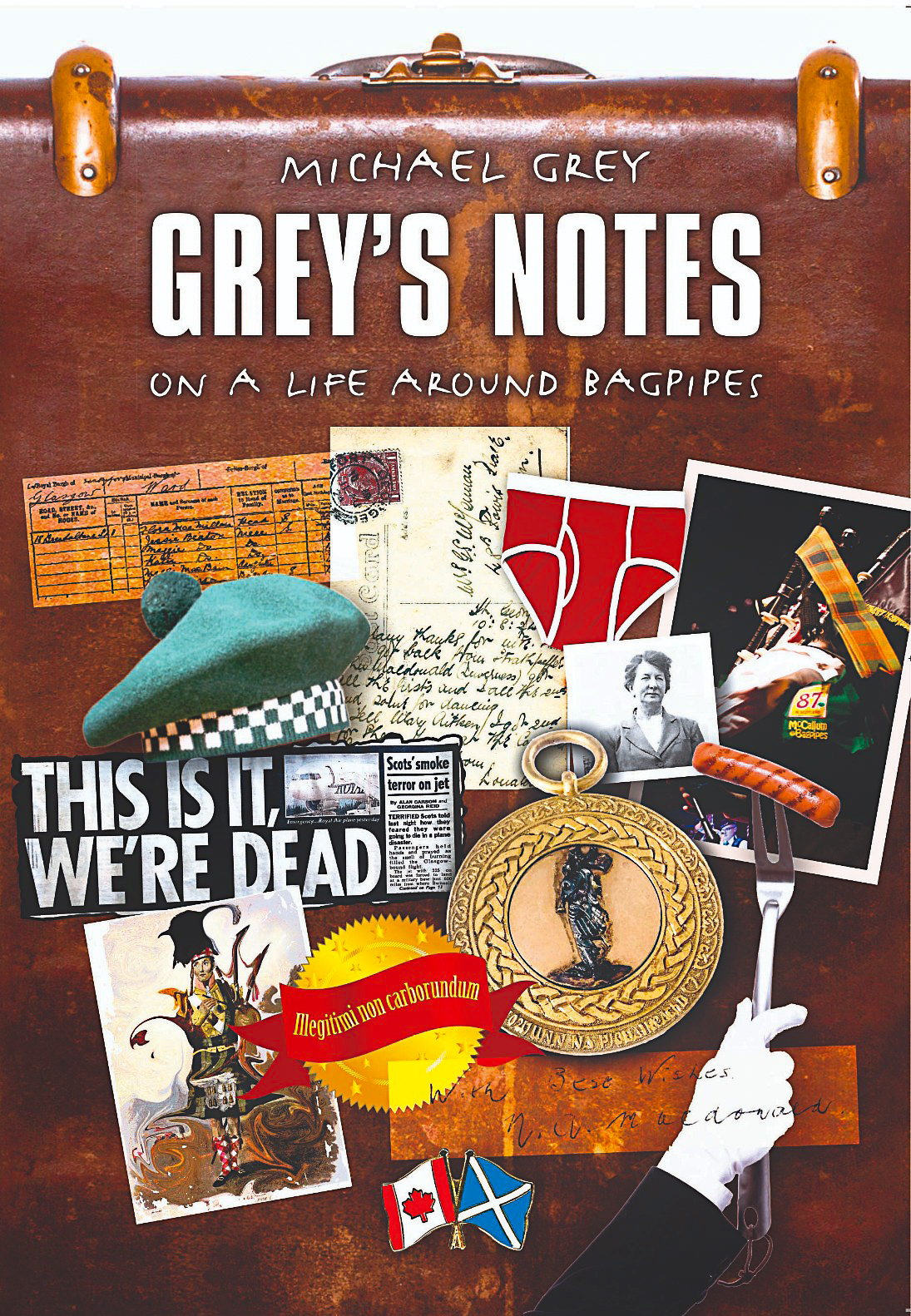Pibroch Piobaireachd
April 3, 2009 on 10:17 am by Michael Grey | In Music, Solo Piping, Tips, Whinges | 4 CommentsWe know there’s politics everywhere. And, when given the option, the way we choose to spell words is no exception. A Canadian, say, living in the United States, might exert quiet subversion by hanging on to Canadian spelling of any number of words. A note to his boss might read, “…followed up on the neighbourhood initiative; successful in addressing the signage colour controversy; local employees in good humour…”. That Canuck is implicitly saying to his American boss, “I’m Canadian, I’m not like you, I spell bigger, better…”. He’s also implicitly proclaiming to his boss he’s an asshole. But that’s a tangent of a different colour.
In piping there are two words that strike me as highly political: pibroch and Gaelic. How you spell them, how you say them all tell a story: Where you’re from, what you know, who you think you are, who you want to be – and who you don’t want to be.
There was a time I slavishly spelled pibroch the Gaelic way – lots of letters. I was (and am) keen on things Gaelic; I wanted to say, I think, I was a member of what J. Reid Maxwell called the “Piobaireachd Club”, and was on the inside Gaelic track – one heavily covered in peat no doubt. Poncy MacPoncypants.
It really doesn’t make good sense that we insert Gaelic spelling of pibroch in English text, English prose, does it? Among other things, it really doesn’t do much to promote the music to outsiders. We all know what happens when we come across a funny word we can’t recognize or pronounce. We almost always skim over it and quickly move on to something more comfortable, something easier to take in. To a reader of a report of one of our Big Music contests the peeobaireached took 13 minutes to play…
I note that Gaelic speakers I know, when writing in English, almost always spell pibroch the Anglicised way. That, too, is a political statement I think. Anyway …
I always enjoy talking to my français-speaking friends; their français is always a pleasure to hear. That sentence is a bit silly, isn’t it. What English-speaking person refers to French as “français” when speaking English? They say French. French is the English equivalient of français, of course.
Now take the word Gaelic. You often hear an Anglophone say Gaelic the Ghàidhlig way as in, “She speaks lovely Gallic”, or, “He has the Gallic”, with the “a” sound short. To me that’s the equivalent of ordering fries Français at McDonalds (yes, I know French fries are “frites” in the French language!). My granny, who I’ve written about before, always said, “Gaylic” when speaking English, with the “a” sound long. That makes sense to me.
That I’m even writing about such trivialities speaks volumes about the parochial nature of things related to the Great Highland Bagpipe.
The tip today just might be to never question your granny’s wisdom.
M.
4 Comments
Sorry, the comment form is closed at this time.
Dunaber is using WordPress customized and designed by Yoann Le Goff from A Eneb Productions.
 Entries and comments
feeds.
Valid XHTML and CSS.
Entries and comments
feeds.
Valid XHTML and CSS.



Good food for thought, Mike. Always so many layers in these things, and a lad from Saskatchewan is likely to be incorrect on anything except the price of perogies, or the scarcity of haggis. Hmmm, a tune name! Lucky you to have experienced the wisdom of your granny. Mine were off on the westward journey before I was born.
Comment by iainmacd — April 6, 2009 #
The politics of language. I know one thing, I can say Saskatchewan without starting to stutter … M.
Comment by mike — April 6, 2009 #
This is a difficult one. There are complicated reasons why different pronunciations, different spellings, and eventually different words manifest in different languages. ‘Francais’ and ‘French’ are different words, not just different spellings, and one is an English word, the other is not. So it would be strange to make a habit of using the French word when speaking English given that there is a common English word with the same object and connotation. It is at least similarly awkward to insist on a pronunciation from another language where a different pronunciation has become established in one’s own. To say “I’ve just returned from a trip to Cuba”, and to pronounce Cuba ‘Cooba’, is either pretentious or hilarious, or both. But there are other cases where pronunciations are less established. Is Celtic best pronounced by an English speaker as “Seltic” or something closer to “Keltic”? The former, to my ear, is a basketball team, and nothing else. I find it crass to hear that pronunciation. I also find it crass when I hear people use the word “scotch” unless they are referring to a class of whiskey (the choice pronunciation has simply been lost in that context).
Unlike the cases of the word “French” and the pronunciation of ‘Cuba’, use of the word ‘scotch’ for ‘Scottish’, or the pronunciation of the word ‘Celtic’ are far from settled in English. Languages are alive, and surprisingly majoritarian. We have a say in deciding the direction they move in. We can influence their direction through insisting on the use of certain words and pronunciations, and the direction we push can say something about us. Sometimes words, spellings, and pronunciations differ because they have different linguistic origins, other times because of historical accidents (as happens with clumsy translations). More often than not, though, it seems that pronunciations and spellings change because of ignorance (including illiteracy) or laziness. In one case, people have a hard time pronouncing a foreign word, so they pronounce something close. If that is effective at communicating the idea, fair enough, though until that pronunciation is established, it will be a distracting and inefficient form of communication. In another case, people may not know how to spell a word, and instead of looking it up, they try to spell it phonetically. Their success will depend on how well they have grasped the original pronunciation, and how strong their command the rules of their written language is. Letters are usually lost or mixed up in this process. In still other cases, people do not have sufficient grasp of the rules of their written language when they try to pronounce a written word they have never heard. “Chimera” becomes “tshimera” (with the soft ‘ch’ and ‘i’), instead of “Kymeara”, as it ought to be pronounced (in Latin or English).
In cases where pronunciations, spellings, and even words are in flux, and where a potential shift is occurring out of ignorance or laziness, why not resist it? How should ‘Gaelic’ be pronounced? It’s not an English word, so perhaps we should look to the phonetic rules of the language the word signifies. If people pronounce it differently in English, we have to ask why. Is it because the same letters pronounced in English have different phonetic consequences? If so, then perhaps we have mistranslated (misspelled) the Gaelic word. We need to find the English word that has a phonetic consequence that matches up with the Gaelic word we are trying to represent. Or perhaps it’s pronounced differently by English speakers just because some people think (incorrectly) that the phonetic rules of English have the implications they read from the word. That’s ignorance (if it is). Appealing to the way native speakers pronounce the word in English (as opposed to in Gaelic), says something about the experiences or influences on those speakers, but not necessarily about whether we ought to follow their lead (they could be under the same misguided influences that English speakers are under). I don’t know where the designator “pibroch” came from, but I’d like to know. Given that I don’t, I’m without a clear stance on whether I should use that spelling, If it is the case that ‘piobrach’ exists just because it’s become a common way to spell the word it’s meant to signify among people who either don’t know how to spell it properly, or who can’t be bothered to remember all of the letters in the original designator, I’d be inclined to resist it, myself. I’d be inclined to resist it because there already exists a designator for the word ‘piobrach’ is meant to designate, and because the later word has been born of unpleasant parents (if it has been).
There is a simple question as to whether a dictionary is meant to be proscriptive, or descriptive. The question is simple because the answer is that it is both. The descriptive fuction of a dictionary is pssive, though, and people often lose track of the value or significance of its proscriptive function. Where terms are descriptively settled in a language, it is functionally irrelevant how they came to be settled. It is a different story when they are unsettled (or have been settled, but are now in flux).
Comment by jamsie an t-sealgair — April 7, 2009 #
Well Jamsie “Tseelsgare” aren’t you the Blethery Boots …I get your point on living, ever-changing, dynamic language and all that. Ya seem ta really know what ya iz jivin’ about. I give ya props. Real pimp-tight sheeit…dizzle.
I respect your pretty well-made arguement in support of Anglophones prounouncing Gaelic, “Gallic”. I can only say, when spoken by Anglophones, the word sounds like a big flat low G in my ear, it clangs like the trolley.
Regarding the origins of the Anglicized spelling of pibroch I can’t say [I’ll send this thread to Allan MacDonald – he’ll know that – and more] but I do understand that the literature of Scottish Gaelic didn’t come into it’s own until the 18th century, and only then, thanks mainly to the bible. So “piobaireachd” (no accent due to WordPress comment limitations) may not have the grand provenance that warrants careful attention by Anglos.
I think we should be both practicing tunes. Slanj, M.
Comment by mike — April 7, 2009 #